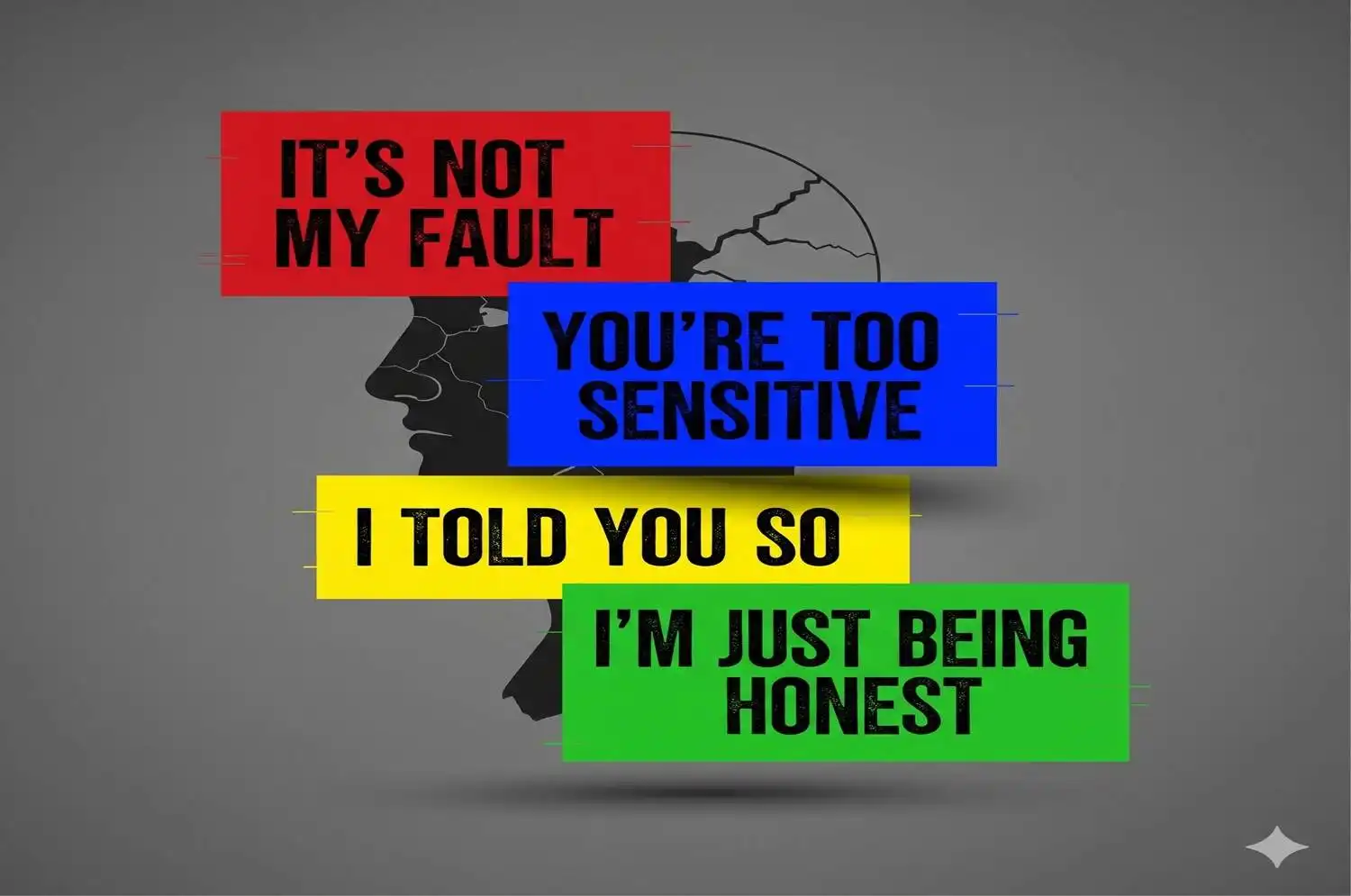Have you ever wondered if the words you use daily reveal your emotional intelligence? According to Harvard researchers, certain phrases can signal low emotional intelligence (EQ). Understanding them is the first step toward building stronger communication and relationships
Table of Contents
Toggle4 Phrases People with Low Emotional Intelligence Often Use
1. “That’s just how I am”
Why it signals resistance to growth:
This phrase often reflects a fixed mindset and an unwillingness to adapt. When someone says this, they essentially shut the door on self-improvement, which can create frustration in relationships. Growth requires flexibility, empathy, and a willingness to evolve.
Better alternative responses:
Instead of rigidly declaring this, emotionally intelligent individuals might say, “I know this is something I struggle with, but I’m working on it.” Such phrasing shows openness to feedback and a desire to grow, both of which strengthen emotional intelligence in relationships.
2. “You’re too sensitive”
How dismissiveness affects relationships:
Labeling someone as “too sensitive” undermines their feelings and invalidates their experience. This dismissive response can breed resentment and distance in relationships, weakening trust and intimacy.
Emotionally intelligent rephrasing:
A better approach would be to say, “I didn’t realize my words affected you that way—thank you for telling me.” This simple shift acknowledges the other person’s emotions without judgment and reflects emotional intelligence in relationships.
3. “I don’t care what you think”
Why this shuts down communication:
This phrase communicates arrogance and disrespect. It signals that the other person’s perspective has no value, which damages trust and prevents meaningful dialogue. Over time, it can erode the foundation of healthy communication.
Building empathy and openness:
A more emotionally intelligent alternative might be, “I may see things differently, but I’d like to understand your point of view.” This fosters openness, even when disagreements exist, and enhances emotional intelligence in relationships by promoting respect and empathy.
4. “It’s not my fault”
Avoiding accountability and blame-shifting:
Blame-shifting is a hallmark of low emotional intelligence. By refusing to accept responsibility, individuals damage trust and create a cycle of defensiveness in their relationships. Accountability is key to resolving conflicts constructively.
Learning to take responsibility:
A healthier response would be, “I see how my actions contributed to this, and I’ll work on improving.” Taking responsibility demonstrates maturity, empathy, and accountability—qualities that are central to emotional intelligence in relationships.
Why Emotional Intelligence Matters
Harvard research consistently shows that emotional intelligence (EQ) is just as important—if not more critical—than IQ in determining long-term success. While technical skills and knowledge can open doors, EQ shapes how individuals manage stress, resolve conflicts, and inspire others.
One of the most compelling findings is its direct influence on emotional intelligence in relationships. People with high EQ can recognize subtle emotional cues, practice empathy, and communicate more effectively, creating stronger personal bonds. This ability not only deepens trust but also reduces misunderstandings and emotional conflicts.
In the workplace, EQ directly impacts leadership and communication. Leaders who score high in emotional intelligence are better at motivating teams, navigating challenges, and fostering inclusive cultures where employees feel valued. On the other hand, low EQ often results in poor collaboration, high turnover, and strained workplace dynamics.
Ultimately, EQ is more than just a soft skill—it’s a powerful predictor of resilience, career growth, and meaningful connections.
How to Build Higher Emotional Intelligence
Self-Awareness Practices
The foundation of emotional intelligence in relationships begins with self-awareness. Recognizing your triggers, emotional patterns, and automatic responses allows you to pause before reacting. Daily practices like journaling, mindfulness meditation, or simply checking in with your emotions during stressful situations can help you understand yourself better. The more you know about your own feelings, the easier it becomes to empathize with others.
Active Listening Strategies
True emotional intelligence in relationships thrives when partners feel genuinely heard. Active listening goes beyond nodding—it means giving full attention, avoiding interruptions, and reflecting back what the other person is expressing. Simple techniques like maintaining eye contact, paraphrasing their concerns, and validating emotions create trust and reduce misunderstandings. By listening with intention, you communicate respect and deepen emotional bonds.
Reframing Language and Responses
Words shape the emotional climate of any relationship. Instead of reacting with blame or criticism, emotionally intelligent individuals reframe language into constructive dialogue. For example, shifting from “You never listen” to “I feel unheard when…” opens the door to understanding rather than defensiveness. Reframing also means choosing responses that acknowledge emotions while steering the conversation toward solutions. This habit fosters resilience, reduces conflict, and strengthens long-term connection.
Read Also:
The Psychology of Confidence: Simple Shifts to Boost Self-Belief
The Psychology of First Impressions: Why They Matter More Than You Think
FAQs:
Q1: What is emotional intelligence in simple words?
Emotional intelligence is the ability to recognize, understand, and manage emotions—your own and others’.
Q2: Can emotional intelligence be improved?
Yes, through self-awareness, practice, empathy, and communication techniques.
Q3: Why does Harvard link language to low emotional intelligence?
Because repeated negative phrases reflect thought patterns that undermine empathy and emotional awareness.









